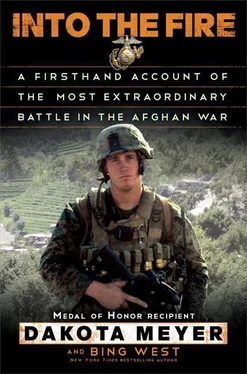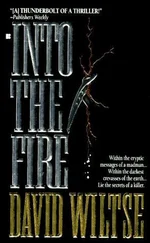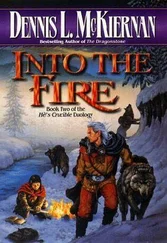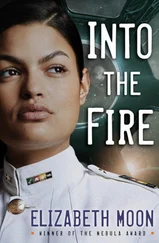The rebuke stung, because I knew he was right. Climbing up the terraces and busting down compound doors—with no one watching my back—I wouldn’t have lasted long. I sat where I was and fumed. Steam was coming out of my helmet.
I was pissed at this long-haired captain, the way I’d sometimes get with a coach. I didn’t like what he was saying, but I didn’t disagree with his right to say it. I didn’t know what step I could take next. Swenson was the outsider. He lived in a different camp. He didn’t even know our names, where we were from, or what military skills we did or didn’t have. He was our leader, and yet he didn’t know us. We hadn’t even been introduced. I didn’t know how to get through to him.
I did know he had gotten the Command Group out and plunged right back into the fire. We were in this together, sitting there in a tense, silent standoff. We watched as Silano, the lead pilot, brought his Kiowa down to a few feet above a trench and hovered there.
“Highlander, we’ve spotted five bodies…”
I’d heard all I needed. I jumped out the door and sprinted across the field to the right, opening some distance before Swenson yelled at me. I ignored him, knowing he’d be right behind me. A PKM shifted to me when I was halfway across the terrace. I hopped over a terrace wall and fell into a deep, well-constructed trench.
I landed next to Gunny Johnson, and my heart stopped. He was lying on his back with his arms outspread, his eyes open but never to see anything again on this earth.
A few feet farther on, I came across the body of an Afghan interpreter who had traveled with our team. I felt sick to my stomach. I knew what I would see next.
Lt. Johnson lay on his back, with his eyes closed. He looked peaceful, despite the entry wounds in his right shoulder. Doc Layton lay on top of him, with medical supplies scattered around. I rolled him over. Doc had taken a three-round burst in the right cheek.
Off to the right, Staff Sgt. Kenefick was lying facedown, his GPS with a busted screen clutched in his left hand. His mouth was open and full of dirt. I think he was yelling out his grid location—the numbers I heard over the radio four hours earlier—when he was shot in the back of his head.
The team was wiped out. Their bodies were stiff and cold. Most of their gear was gone—weapons, helmets, radios. The 240 machine gun was missing, but Lt. Johnson’s pack was full of linked ammo. No one had fired the gun I was supposed to be carrying.
I had never believed it would end like this. My mind refused to accept what I was seeing. Hour after hour, I had imagined them holed up inside a stone house, shielded from RPG blasts, exchanging gunfire with dushmen who knew better than to rush them.
Swenson was standing above the trench. We were taking random incoming and he was watching for movement among the houses. He talked into his radio for a few seconds, then bent down and picked up some of the team’s gear. He didn’t say a word. He left me alone with them.
I hoisted the staff sergeant over my right shoulder. He was heavy and I fell once. He landed on top of me. I got up and carried him to an Afghan truck, carefully tucking him into the open bed. I stood there for a minute, suddenly beat. As I turned away from the truck, Hafez put his hand on my shoulder.
“The Askars say you carried out their dead. Now, they want to help you.”
Five or six of us returned to the trench, while the damn PKM kept shooting at us. I carried Gunny Johnson back; the Askars took Lt. Johnson and Doc Layton. Swenson lugged back the rest of the equipment.
After six hours, it was over, and I felt as empty as a balloon without air. Hafez took me aside.
“They have gone to a better place,” he said. “Don’t cry. The Askars will take it as weakness.”
No way I was going to cry. But at that moment, I didn’t feel like killing anyone, either. I wasn’t angry or bitter, just deflated and exhausted, as though I had run a marathon and couldn’t remember why I wanted to do it. I was too damned tired to stand.
Still taking fire, we left the valley in a convoy of about four trucks. Rod stopped near the casualty collection point, where we talked with Capt. Kaplan and Cpl. Norman, who had walked down from their observation post. Staff Sgts. Valadez and Miller radioed that they were coming down from their perch, too. Everyone was accounted for. We had shuttled in and out of the valley five, six, or seven times that morning, depending on which of us you asked. It was all a fog. No senior American officer or pursuit force had come forward from Joyce. Capt. Swenson said he would stay to wrap things up.
Hafez and I climbed into the back of an Afghan truck carrying my dead brothers. I held Staff Sgt. Kenefick with my left hand, and Lt. Johnson rested on my right arm. As we bounced down the track, we passed villagers returning to Ganjigal. Some started to laugh, pointing at my dead friends. I reached for my rifle.
“Don’t,” Hafez said, holding my arm. “Not worth it.”
* * *
When we arrived back at Camp Joyce, I walked into the battalion aid station to get the body bags. Maj. Williams rushed up and clutched at my body armor.
“Tell me they’re not all dead, not all of them.”
“They’re all dead,” I said, removing his hand.
I walked outside, where my friend Sgt. Charles Bokis was waiting.
Bokis said, “I’ll give you a hand.”
We walked back to the bodies. Sgt. Maj. Jimmy Carabello, the top enlisted man at Joyce, hastened up and put his hands firmly on my shoulders, trying to steer me away.
“You don’t have to do this, Devil Dog. My guys will make sure it’s done right.”
That wasn’t how to end it. If I had died, I’d want Lt. Johnson and Staff Sgt. Kenefick to put me in the bag.
“I’ll finish it,” I said.
Bokis and I carry the bodies into the back next to the freezers, take off their battle gear, and dig through their pockets, marking items for shipment to their families. I take a chevron from Staff Sgt. Kenefick and attach it to my dog tags. Funny, we had started out not liking each other a thousand years ago.
We clean them up as best we can, wiping the blood and dirt off their faces, taking off their field gear, straightening out their camouflage uniforms, and placing each in a black body bag. We mark the name at the head, drape an American flag over each bag, bow our heads in prayer, and drive them to the helo pad.
After the helicopter had taken my brothers on their first leg home, an Army captain took me aside and asked how I was feeling. She was a psychologist who meant well, asking me to fly back to the main base at Bagram to “decompress.” I expressed my thanks and turned away.
Sgt. Maj. Carabello, who had been watching me, took me over to his hooch and offered me his cell phone to call home. I didn’t want to talk to my dad. What was I supposed to say? That my brothers were dead and I was alive? I shook my head no and started to leave.
“Devil Dog, wash off that blood,” he said. “You’ll feel better.”
In a latrine mirror, I see a blood-streaked monster looking back at me. I’d shoot without a moment’s hesitation if I saw that face outside the wire. My cammies look like rust and my red hands feel like sticky glue. The copper smell of blood hangs on me. I slosh hot water all over me. I make a mess of the floor.
In the battalion aid station, an American Army doctor had treated seven Afghan troops for bullet wounds, two for concussions, and two for RPG and rocket shrapnel. He had evacuated another nine with more serious wounds and set the two dead aside for burial. I walked a few hundred meters to the Afghan side of the camp, made my way to the makeshift morgue, and helped to tidy up two dead Askars.
Читать дальше












